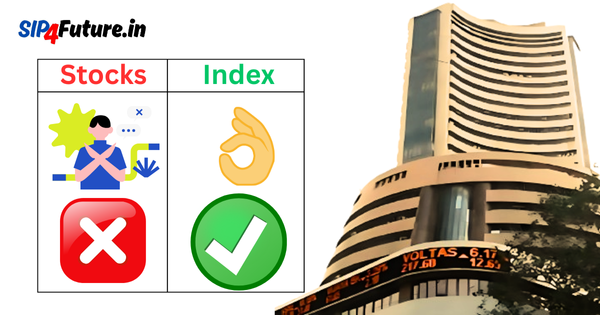On April 25, 2025, Aurobindo Pharma Ltd. achieved a significant milestone when its subsidiary, CuraTeQ Biologics, secured a positive opinion from the Committee for Medicinal Products for Human Use (CHMP) for its biosimilar, Dazublys® (trastuzumab). This biosimilar, designed to treat HER2-positive metastatic and early breast cancers, marks Aurobindo’s third biosimilar to receive CHMP endorsement. With European Commission approval expected by July 2025, Dazublys could soon be available across EU member states, enhancing access to cost-effective cancer treatments. This article explores the implications of this achievement, Aurobindo’s ambitious biosimilar strategy, and its impact on patients and investors.
What Is a Biosimilar and Why Is Dazublys Significant?
A biosimilar is a biologic medicine highly similar to an approved reference drug, offering comparable efficacy and safety at a lower cost. Dazublys, Aurobindo’s biosimilar to Roche’s Herceptin®, targets the HER2 protein, overexpressed in certain breast and gastric cancers. By inhibiting HER2 signaling, Dazublys halts tumor growth and engages the immune system to combat cancer cells. Its CHMP positive opinion, reported by The Hindu, confirms its equivalence to Herceptin in clinical and analytical studies, making it a game-changer for affordable cancer care.
The significance of Dazublys lies in its potential to reduce treatment costs for HER2-positive breast cancer, a condition affecting thousands annually in Europe. Biosimilars like Dazublys can lower healthcare expenses by up to 50%, according to the European Medicines Agency (EMA), benefiting patients and healthcare systems alike.
| Key Features of Dazublys (Trastuzumab Biosimilar) | Details |
|---|---|
| Target Disease | HER2-positive metastatic and early breast cancers |
| Mechanism | Inhibits HER2 protein, halts tumor growth |
| Reference Drug | Herceptin® (Roche) |
| Benefit | Cost-effective alternative with similar efficacy |
How Does the CHMP Approval Boost Aurobindo’s Biosimilar Ambitions?
The CHMP’s positive opinion for Dazublys, announced on April 26, 2025, by Business Upturn, is a pivotal step toward European Commission approval by July 2025. This approval will enable Aurobindo to market Dazublys across EU member states, strengthening its position in the global biosimilar market. Despite a 3% stock dip to ₹1220.10 on the National Stock Exchange (NSE) on April 25, 2025, analysts remain optimistic about Aurobindo’s long-term growth, as noted in X posts.
Dr. Satakarni Makkapati, CEO of Biologics, Vaccines, and Peptides at Aurobindo, highlighted the company’s progress: “Dazublys is our third biosimilar to receive CHMP endorsement and fourth in the EU, following Bevqolva’s MHRA approval in November 2024” Medical Dialogues. This milestone aligns with Aurobindo’s goal to launch at least 10 biosimilars by 2030, focusing on oncology and immunology.
When Will Patients Access Aurobindo’s Biosimilar?
Pending European Commission approval, Dazublys is expected to launch in the EU in the second half of 2025. The approval process typically concludes within 67 days of a CHMP positive opinion, aligning with the July 2025 timeline. Administered as a 150 mg powder for concentrate for solution for infusion, Dazublys will be available in hospitals and specialized clinics.
This timeline is critical for patients with HER2-positive breast cancer, who face high treatment costs. Aurobindo’s biosimilar could ease this burden, as emphasized by Vice Chairman Nithyananda Reddy: “Our vision is to deliver affordable, high-quality biosimilars to address unmet medical needs by 2030” The Hindu.
What Are Aurobindo’s Broader Biosimilar Plans?
Aurobindo Pharma is building a robust biosimilar portfolio through CuraTeQ Biologics, targeting 10 launches by 2031. Its pipeline of 14 biosimilars focuses on oncology and immunology, addressing high-demand therapeutic areas. Recent successes include:
- Zefylti (filgrastim biosimilar): EC approval in February 2025 Medical Dialogues.
- Dyrupeg (pegfilgrastim biosimilar): EC approval in April 2025 Business Standard.
- Bevqolva (bevacizumab biosimilar): MHRA approval in November 2024 Pharmacy.biz.
These approvals showcase Aurobindo’s ability to meet stringent regulatory standards, positioning it as a key player in the biosimilar market.
| Aurobindo’s Biosimilar Portfolio | Status | Target Indication |
|---|---|---|
| Dazublys (trastuzumab) | CHMP positive opinion, April 2025 | HER2-positive breast cancer |
| Zefylti (filgrastim) | EC approval, February 2025 | Neutropenia |
| Dyrupeg (pegfilgrastim) | EC approval, April 2025 | Neutropenia |
| Bevqolva (bevacizumab) | MHRA approval, November 2024 | Various cancers |
How Does Aurobindo’s Biosimilar Fit into the Global Market?
The global biosimilar market is poised for growth, driven by patent expiries and demand for affordable biologics. The trastuzumab biosimilar market, in particular, is expanding, with competitors like Amgen and Pfizer already established, per a QY Research report. Herceptin’s patent expiry in Europe (2014) and the US (2019) created opportunities for biosimilars, and Aurobindo’s Dazublys is well-positioned to capture market share.
Biosimilars are transforming healthcare economics. In the EU, they’ve reduced treatment costs significantly, as per the EMA. However, challenges like pricing pressures and potential US tariffs, noted by CNBC TV18, could impact profitability. Aurobindo’s strategic pricing and distribution will be key to its success.
What Challenges Await Aurobindo’s Biosimilar Journey?
Despite the CHMP approval, Aurobindo faces hurdles in the biosimilar space. Regulatory requirements are stringent, demanding extensive clinical data to prove biosimilarity. The EMA’s rigorous standards, while ensuring safety, increase costs and timelines. Competition from established players like Amgen requires Aurobindo to differentiate its biosimilar through pricing or partnerships.
Stock volatility, with a 20-23% decline in 2025 Business Today, reflects investor concerns over external factors like proposed US tariffs. These challenges underscore the need for Aurobindo to balance innovation with market realities.
| Challenges in Biosimilar Market | Impact on Aurobindo |
|---|---|
| Regulatory Hurdles | High costs, potential delays |
| Competition | Need for competitive pricing |
| Tariffs and Pricing Pressures | Reduced profitability |
How Are Investors Responding to Aurobindo’s Biosimilar News?
Despite the 3% stock dip on April 25, 2025, investor sentiment remains positive, as seen in X posts. Analysts on Moneycontrol view the CHMP approval as a growth driver. Aurobindo’s market capitalization stood at ₹70,732.93 crore on April 26, 2025, per the Bombay Stock Exchange (BSE) [X post:4].
Financially, Aurobindo reported a 10% drop in Q3 FY25 profit to ₹845.56 crore Business Standard, but its biosimilar focus and integrated operations bolster confidence. Investors will closely watch the European Commission’s decision and Aurobindo’s execution of its 2030 plan.
What’s Next for Aurobindo’s Biosimilar Strategy?
Aurobindo is well-equipped to advance its biosimilar ambitions, with a Hyderabad facility boasting 15 KL bioreactors ET Now. Partnerships, like its 2024 deal with MSD, enhance its capabilities. The company’s pipeline, targeting oncology and immunology, aligns with global health needs.
Approvals beyond the EU, such as India’s CDSCO recommendation for Dazublys Pearce IP, signal broader market potential. Aurobindo’s commitment to 10 biosimilars by 2031, as reiterated by CEO Satakarni Makkapati ET Now, positions it as a biosimilar leader.
Conclusion
Aurobindo Pharma’s biosimilar Dazublys is a beacon of hope for patients with HER2-positive breast cancer. The CHMP’s positive opinion on April 25, 2025, paves the way for European Commission approval by July, promising affordable treatment options. Aurobindo’s vision to launch 10 biosimilars by 2031, backed by a strong pipeline and manufacturing prowess, sets it apart in the global market. While challenges like competition and tariffs loom, Aurobindo’s focus on innovation and affordability ensures a bright future. As Dazublys prepares to transform cancer care, Aurobindo is redefining what’s possible in the biosimilar space.




